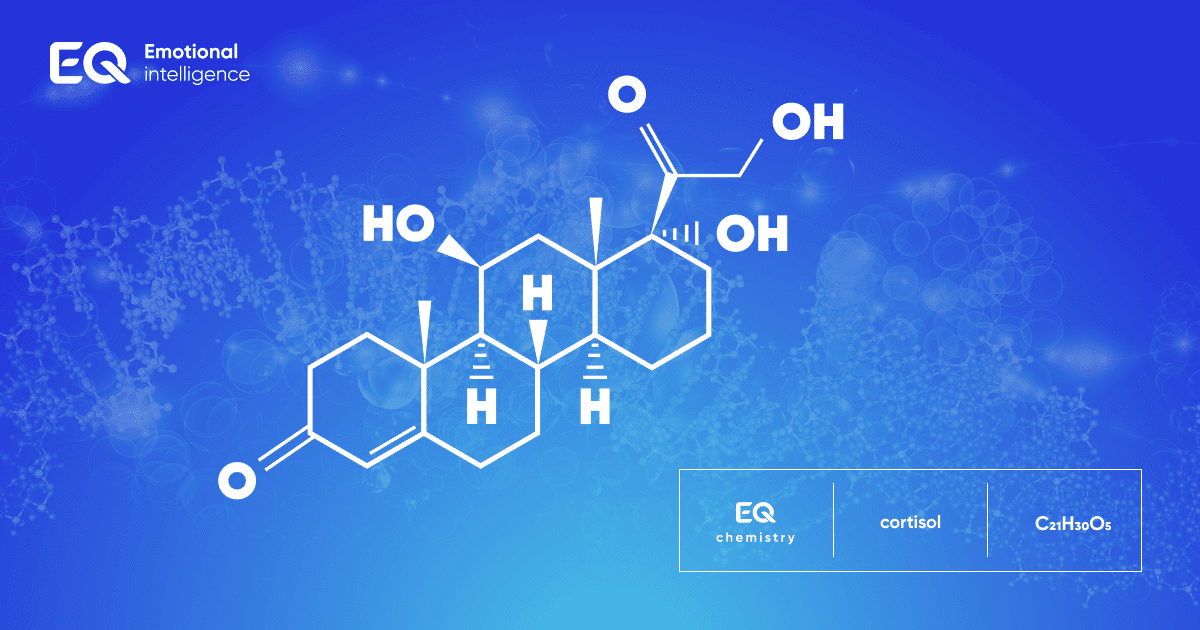A frown, tight lips and jaw, sharpness in movements and a raised voice – do you recognize the image of a person in anger?
Anger is a pretty strong negative emotional state. Unlike sadness, in anger, vitality rises for a short time, or rather, even programs for survival are activated. This is how evolution came up with – in case of urgent need to mobilize resources to protect your own life or the lives of your loved ones.
What chemical cocktail creates this? Today, about the main stress hormones – CORTISOL, NORADRENALINE AND ADRENALINE.
CORTIZOL is a hormone synthesized by the adrenal cortex. This substance is responsible for the speed of transformation of fats, proteins and carbohydrates into energy, regulates immune responses and, most importantly, adapts the body to stress.
It is Cortisol that gets us out of bed awake and full of strength in the morning. A healthy person at this time has the highest level of the hormone in the blood. Little by little, before the onset of the evening, the production of cortisol decreases and our performance decreases, fatigue is felt and it becomes possible to fall asleep.
In cases of danger, objective or not, a signal appears in the cerebral cortex that goes to the hypothalamus, which synthesizes a hormone that affects the pituitary gland. And the pituitary gland, in turn, gives a sign in the form of adrenocorticotropic hormone (ACTH), which causes the synthesis of cortisol in the adrenal glands.
At this time, blood pressure rises in the body, the heart rate increases, the muscles are toned – the body is mobilized.

At too high concentrations of Cortisol, the following is observed:
– weakening of the immune system;
– upset of the gastrointestinal tract;
Difficulty sleeping
– tiredness;
– malfunction of the thyroid gland;
– there is aggression and irascibility
Remember that cortisol is released not only in response to real threats, but also to disturbing thoughts. Therefore, one of the first recommendations for reducing the level of this and other stress hormones is to work with thoughts, the ability to be aware of them and let them go, to transfer attention to constructiveness.
Reducing cortisol levels are also favored by:
+ relaxation in a way convenient for you – massage, music, meditation;
+ quality sleep;
+ moderate physical activity and walks;
+ protein foods with enough carbohydrates
And of course, if you have a stressful job or other reasons that cause your cortisol levels to rise all the time, take care of yourself first.
The stress chain also leads to the release of two more hormones – NORADRENALIN and ADRENALIN
Norepinephrine is a hormone produced by the adrenal medulla and a neurotransmitter synthesized in the back of the hypothalamus. It is the predecessor of Adrenaline.
Norepinephrine is also called a wakefulness mediator. It promotes quick decisions, reduces the feeling of fear, increases aggressiveness – therefore, when a person feels anger, he does not think for a long time before deciding to “punish” the object of anger. At the bodily level, norepinephrine constricts blood vessels, raises blood pressure, increases heart rate, and causes tremors.
If norepinephrine levels are often high, there may be a decrease in vision and analytical thinking.
Adrenaline and norepinephrine act synergistically.
Adrenaline is a hormone that is also synthesized in the adrenal glands and triggers a violent fight-or-flight response in the body.
With the release of Adrenaline, the following is observed:
– heartbeat quickens, they say “the heart jumps out of the chest”;
– the vessels of the muscles and mucous membranes are narrowed;
– the need for oxygen increases, breathing becomes frequent and intermittent;
– pupils dilate (“fear has large eyes”);
– the intestinal musculature relaxes
If adrenaline is at high levels for a long time, the amount of muscle mass may decrease and depletion may occur, as a result of increased protein metabolism.
Anti-stress actions aimed at reducing the level of the above hormones:
+ over and over again – full sleep. Sleep 7-8 hours, going to bed no later than 23:00. You can also add 20-30 minutes of naps if you are short of nighttime;
+ a healthy diet that includes a sufficient amount of vitamins and minerals;
+ physical exercises – choose the type of activity that suits your soul and the level of load for the body;
+ meditation;
+ relaxation;
+ walks in the woods, in the fresh air.
All these actions not only reduce the level of stress hormones, but also develop a beneficial emotional background, accompanying the synthesis of hormones of joy and happiness!
Anger, rage, irritation are not just the reactions of your body and mind. They are, in a way, your allies. The ability to control, direct and use these resources is a very useful skill. All this can be learned! (you can add a link to the right here on aggression, for that matter)


Recent Comments